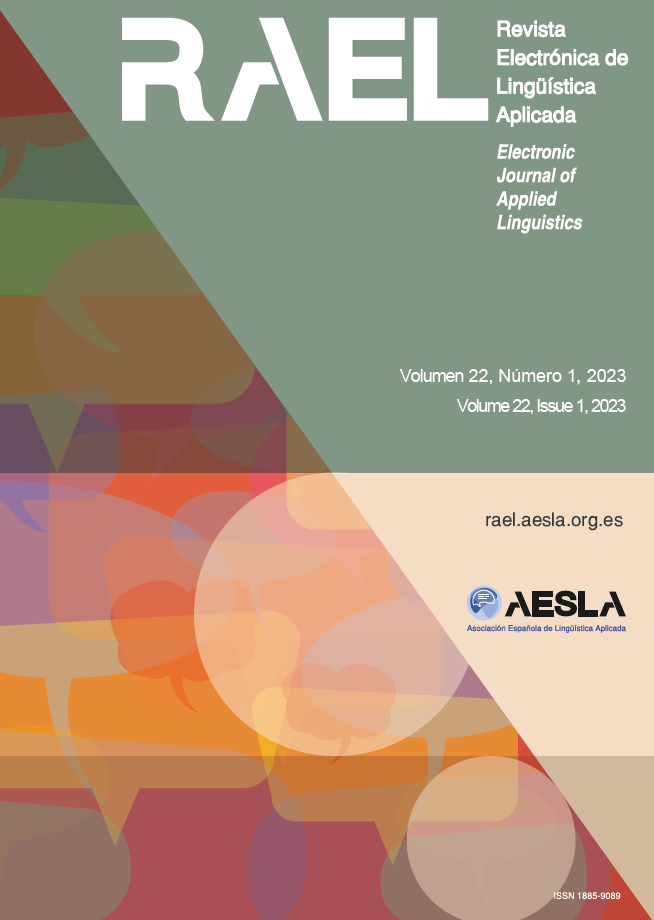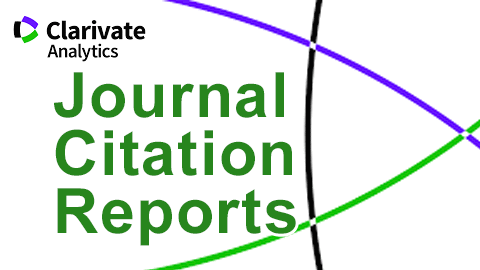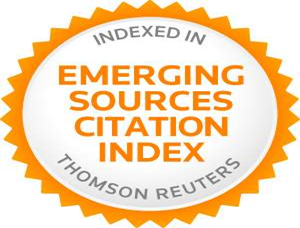Applying RRG to the Lexical Paradigms of Old English Strong Verbs
DOI:
https://doi.org/10.58859/rael.v23i1.582Keywords:
Role and Reference Grammar, Old English, Lexical paradigm, Verb, AktionsartAbstract
This article tests the current Role and Reference Grammar (RRG) taxonomy in the lexical paradigms of Old English strong verbs. The data have been extracted from the lexical database Nerthus and consists of 328 lexical paradigms and 1,509 verbs. Lexical paradigms have been identified and reviewed. Then, the Aktionsart taxonomy in RRG has been applied to each verb. The conclusions address both theoretical and descriptive aspects. On the theoretical side, this study offers a critical review of the RRG theory and proposes updates such as the addition of a new Aktionsart type for describing unbounded processes. Additionally, the analysis offers a fresh perspective on the nature of causative states and identifies a significant group of verbs that do not fit into any of the Aktionsart classes in RRG, presenting a solution. On the descriptive side, the research finds RRG applicable to Old English with consideration of its findings.
References
Bosworth, J. & Toller, N. T. (1973). An AngloSaxon Dictionary (7th ed.). Oxford: Oxford University Press.
Cambridge University Press. (2023). Cambridge Dictionary. Retrieved from https://dictionary.cambridge.org/dictionary/english/
Clark Hall, J. R. (1984). A Concise Anglo-Saxon Dictionary (4th ed.). With a supplement by H. D. Meritt. Toronto: University of Toronto Press.
Cortés Rodríguez, F. (2014). Aspectual features in Role and Reference Grammar: A layered proposal. Revista Española de Lingüística Aplicada, 27, 23-53. doi: 10.1075/RESLA.27.1.02COR
Dowty, D. (1991). Thematic proto-roles and argument selection. Language, 67, 547-619. Retrieved from https://www.jstor.org/stable/415037
Filip, H. (1993). Aspect, Situation Types and Noun Phrase Semantics. PhD dissertation, University of California, USA.
[Available at https://escholarship.org/content/qt6dm5t1tr/qt6dm5t1tr.pdf]
Fidalgo Allo, L. (2022). The semantic map of Aktionsart and lexical entailment of Old English strong verbs. Journal of English Studies, 20, 59-86. doi: 10.18172/jes.5185
Fidalgo Allo, L. (2023). Semantic inheritance in the lexical paradigms of Old English strong verbs. SELIM: Journal of the Spanish Society for Medieval English Language and Literature, 28(1), 1-17. doi: 10.17811/selim.28.2023
Foley, W. & Van Valin, R. (1984). Functional Syntax and Universal Grammar. Cambridge: Cambridge University Press.
García García, L. (2019). The basic valency orientation of Old English and the causative ja-formation: A synchronic and diachronic approach. English Language and Linguistics, 24(1), 153-177. doi: 10.1017/S1360674318000345
Krifka, M. (1992). Thematic relations as links between nominal reference and temporal constitution. In I. Sag & A. Szabolsci (Eds.), Lexical Matters (pp. 29-54). Standford: CSLI.
Lacalle Palacios, M. (2021). Old English verbs of learning: Information and knowledge acquisition. SELIM: Journal of the Spanish Society for Medieval English Language and Literature, 26(1), 25-56. doi: 10.17811/selim.26.2021.25-56
Lacalle Palacios, M. (2022). Old English verbs of depriving: The semantics and syntax of possession transfer. Studia Neophilologica, 94(1), 32-58. doi:
1080/00393274.2021.1879672
Martín Arista, J. (Ed.), García Fernández, M., Lacalle Palacios, M., Ojanguren López, A. E. & Ruiz Narbona, E. (2016). NerthusV3. Online Lexical Database of Old English. Nerthus Project. Universidad de La Rioja. Retrieved from https://www.nerthusproject.com/
Martín Arista, J. (2019). Another look at Old English zero derivation and alternations. Atlantis, 41(1), 163-182. doi: 10.28914/Atlantis-2019-41.1.09
Martín Arista, J. (2020). Old English rejoice verbs. Derivation, grammatical behaviour and class membership. Poetica, 93, 133-153.
Martín Arista, J. (2022). The syntax and semantics of the Old English predicative construction. In N. Lavidas & K. Nikiforidou (Eds.), Language Change and Linguistic Theory in the 21st Century (pp. 102-132). Amsterdam: Brill.
Ojanguren López, A. E. (2020). The semantics and syntax of Old English end verbs. Atlantis, 42(1), 163-188. doi: 10.28914/Atlantis-2020-42.1.09
Ojanguren López, A. E. (2021). Interclausal relations with Old English verbs of inaction: Synchronic variation and diachronic change. RESLA-Revista Española de Lingüística Aplicada, 34(2), 555-584. doi: 10.1075/RESLA.19040.OJA
Pavey, E. (2010). The Structure of Language: An Introduction to Grammatical Analysis. Cambridge: Cambridge University Press.
Pounder, A. (2000). Processes and Paradigms in Word-Formation Morphology. Berlin: Mouton de Gruyter.
Rothstein, S. (2004). Structuring Events: A Study in the Semantics of Lexical Aspect. Oxford: Blackwell.
Sweet, H. (1976). The Student’s Dictionary of AngloSaxon (2nd ed.). Cambridge: Cambridge University Press.
Tenny, C. (1994). Aspectual Roles and the Syntax-Semantics Interface. Dordrecht: Kluwer.
Van Valin, R. Jr. & LaPolla, R. (1997). Syntax: Structure, Meaning and Function. Cambridge: Cambridge University Press.
Van Valin, R. Jr. (2005). Exploring the Syntax-Semantics Interface. Cambridge: Cambridge University Press.
Van Valin, R. Jr. (2014, October). Some questions concerning accomplishments. Paper presented at the 2014 Symposium on Verbs, Clauses and Constructions. La Rioja, Logroño.
Van Valin, R. Jr. (2018). Some issues regarding (active) accomplishments. In R. Kailuweit, L. Künkel & E. Staudinger (Eds.), Applying and Expanding Role and Reference Grammar (pp. 71-94). Freiburg: Albert-Ludwigs-Universität Freiburg.
Vendler, Z. (1967). Linguistics in Philosophy (2nd ed.). Ithaca: Cornell University Press.
Visser, F. T. (1963). An Historical Syntax of the English Language. Vol. I: Syntactical Units with One Verb. Leiden: E. J. Brill.
Downloads
Published
Issue
Section
License
Copyright (c) 2024 Luisa Fidalgo Allo

This work is licensed under a Creative Commons Attribution-NonCommercial 4.0 International License.
Attribution - Non-commercial (CC BY-NC). Under this license the user can copy, distribute and publicly display the work and can create derivative works as long as these new creations acknowledge the authorship of the original work and are not used commercially.
Authors retain the copyright and full publishing rights without restrictions.









